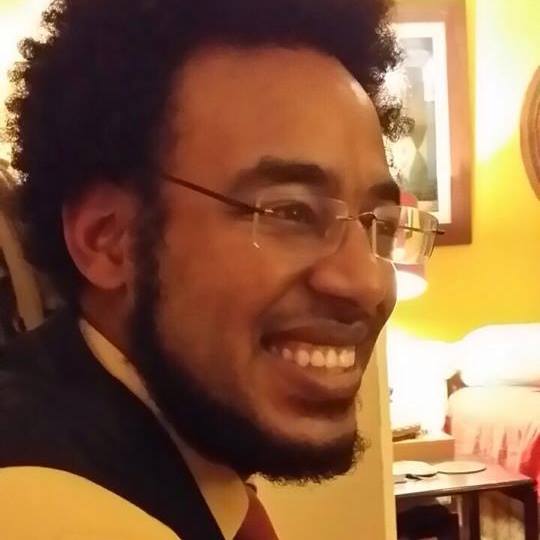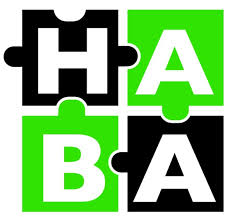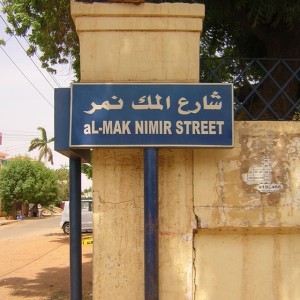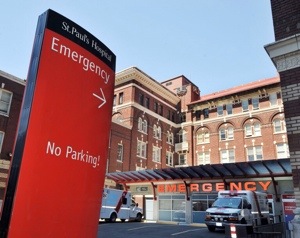An interview with Sudanpreneur & Ashraf Nageeb Khalifa
Tell us a bit about yourself?
My name is Ashraf Nageeb Khalifa Mahgoub. I am 27 years old. I was born in Liverpool. I support Manchester United. Im from Molazmeen in Omdurman.
Tell us about your early school days?
Due to the nature of my father’s job, we constantly moved countries when I was growing up. I actually went to eight different schools in five different countries. The first school I went to was the British School in Indonesia when I was four or five, so I don’t really remember it very well. We then moved to Kenya when I was five and I went to International School of Kenya (ISK) which was an American System so I was put in Kindergarten as they start school a year latter. I stayed at ISK from KG to grade four and I have some good memories.
In 1999 my family and I moved to Jordan, where me and my brother attended the International Community School (ICS) which was a British System. I attended for three years doing years 6 – 8. While I really enjoyed year 7 and 8, year 6 was a horrible experience, as I struggled with both adjusting to the system but also to the British way of spelling.
After those three years me and my brother moved to Amman Baccalaureate School (ABS) which my sister went to. Unfortunately after the end of the first semester the start of the Iraq war saw us evacuated, and we ended up in Liverpool for about 8 months, in which time I attended Merchant Taylor’s School for Boys in Crosby, Liverpool. Merchant Taylor’s claim to fame is that, a long long time ago a bunch for boys who graduated from Merchant Taylor’s went to Spain and decided to start a football team…Today that football team is known as the Mighty Barcelona. After the war we went back to Jordan and I finished grade 8 before going to Sudan on holiday.
The holiday to Sudan became a permanent holiday hahha, and although I thought from the outside Unity was a much cooler place, I did not want to go back a grade, and so I decided to go to Khartoum American School (KAS) in which I spent two amazing years, especially my second year where I had some of the best teachers in my life, Mrs Ramzi, Ms Commosoti, Mr Waugh, Ms Maie Fadl, teachers who have had the biggest impact in my life. I did grades 10-11 and I had some great times. I always refer to these years 2004-06 as the golden era as the CPA finally brought peace and oil money was flowing and investment was happening. The adjustment to the American system was tough and it took a while to adjust, as was adjusting to Sudan as a holiday is different from living there. But I know studying at KAS doesn’t show you the real Sudan.
At the end of grade 11 my brother got sick and we moved to London for treatment. And I was faced with that same choice again, switching to the British system and going back a year, or going to a college and doing a foundation year, or staying in the American system and finishing my final year. I decided to stick with the american system. I did my senior year at the American School in London (ASL).
Joining a new school is always difficult, but joining a new school for your senior year was something else. I really enjoyed my time at ASL and I managed to do AP classes in Economics and Statistics that were not available back in KAS, I had some amazing teachers, made some great friends and had a great experience.
I hope I haven’t confused you so much and you were able to keep up with that haha.
How many brothers and sisters did you have, how did this impact and effect you?
I have one older sister, who is a year and a half older than me, as well as one younger brother who is also a year and a half younger than me. As the middle child… Also I am the oldest son so that brings with it, its own pressure and responsibility.
As the middle child I was always the peace maker in the house. I have a go with the flow attitude and don’t tend to rock the boat so much. I have a good strong relationship with everyone in the family.
I guess being a middle child has played a pivotal role in shaping my personality. I am outgoing, social, creative but also don’t like confrontation, am very much a people pleaser and connect with people easily.
Where did you go to university and what did you study and why?
I went to the University of Surrey in the United Kingdom in September 2007 and graduated in 2010 with a BSc (Hons) Degree.
Initially I wasn’t quite sure what I wanted to study or where. My father discouraged me to go to the US for university, even though I was at an American School, as he wasn’t the biggest fan. I applied to the American Universities of Beirut, Cairo, Dubai, Paris, Sharjah & Rome.
I also applied to UK universities, which I was able to do because I took AP classes which were not available in my School in Sudan at the time. Unfortunately with Ucas you had to apply for the actual course, not like the American system where you major in your third or fourth year. I was still not sure what I wanted to study but gave into the pressure of my uncles and cousins who pushed me to do engineering. So all my choices where for chemical engineering, with a foundation year. I managed to get an offer from Newcastle, Nottingham, Surrey & Southbank with only my top choice of Manchester rejecting me.
After visiting Newcastle for the Ucas interview and not understanding anything anyone was saying, even in Burger King I decided it wasn’t the city for me. Surrey on the other hand was absolutely awesome, I loved the campus and another benefit my cousin was about to start his final year there.
As the end of the year started to approach i got accepted into AUB and i realised I didn’t want to do engineering. I had my heart set on AUB and even got my visa and everything. But also I was communicating with the admissions team at Surrey trying to change my application to Business.
Once my results came out the admissions team at Surrey told me about this program called Entrepreneurship in Technology, IT & Business, and that the program director was happy to accept me straight into first year.
After reading up about the course and finding out more about it I realised that this was the perfect course for me…and the rest is history.
What do you feel is your greatest achievement to date?
I recently attended a short “set up your own business” course and there was a guest “motivational” speaker that came in to speak to us. He told us in most of the things you do in life success is very hard to define and measure. Teaching, social work, politics, how do you know whether you are doing well or not, whether you are successful or not. But in business it is very easy to see whether you are successful. If your making money you are successful, the more money you make the more successful you are.
If I judged my life on that criteria I would be a big failure. Haha as so far I haven’t made any money from Sudan Hub or Sudanpreneur.
This is a very difficult question. I have had a very interesting life. I have traveled a lot. I have had so many different jobs. I have met so many different people. I have had a lot of experiences. I have had so many adventures.
I have never been motivated by money and profit, but I have always had a passion for entrepreneurship and innovation. I have been involved in many many many projects, helping out family, cousins and friends to set up their projects, dreams, passions and businesses. As well as setting up numerous of my own projects, dreams, passions and businesses.
I feel like Sudan Hub is an amazing accomplishment, unfortunately it is a bit too far ahead of its time and it seems to me that people are either just not ready for it, or just don’t understand it. Haha but maybe one day, which I might not live to see, it will receive the appreciation and understanding it deserves.
So I would have to say that Sudanpreneur ranks as my greatest achievement. From the beginning I have been blown away by the support, as well as how well received it has been. I hope I have been able to both inspire people as well as open their eyes to achieve their dreams. But most importantly I hope I have made people feel more proud to be Sudanese.
The one thing I do want to say, feedback is very important so please let me know your thoughts, suggestions, how I can improve. Even just a thank you, or a compliment, or a hug?
What does being Sudanese mean to you?
I am very proud to be Sudanese. For me having travelled a lot growing up it was important for me to have an identity to call my own. I used to go to Sudan pretty much every holiday. But at the same time I created both Sudan Hub and Sudanpreneur to explore and research and discover what it meant to be Sudanese. And five years latter I still don’t know.
Being Sudanese is the most confusing thing in the world. There are a lot of bad things in our culture that we need to eradicate but at the same time seem to have defined our Sudanisim, and I find this is true no matter where we go. I refer to the gossip, the judging, the “Inta walad mino”, the gatee3a, the 7asada, the rascisim (direct and indirect), the way that we like to avoid each other, the way we dont support each others businesses but instead talk bad, the way we dont celebrate our success and its always 3ogbal al jaya, the fact we don’t want to acknowledge the evil and horrible history of our nation, the confusion of are we arab or african, our love of “falsafa”, our inability to actually ask a question instead of going on rant or a tangent during “Nadwas”or “Forums” or “Discussions” etc. I could go on but i think you get the gist of what im saying.
There are also the good things about being Sudanese. The way we genuinely will go out of are way to help someone in need; with financial reward the last thing on our mind, our amazing sense of hospitality, our generosity, but at the same time is that really only Sudanese characteristics, or is that African culture, or Arab culture.
I don’t know what being Sudanese means, but what I do know is that our country is so Big, so diverse, so many tribes, so many languages, so many terrains, so many traditions. What being Sudanese means to me is the Sudan I grew up visiting. The Sudan I was proud to say was the biggest county in Africa. Now I haven’t been back to Sudan since November 2010, since before the separation. So that is the Sudan I know. And that is what being Sudanese means to me. Unity, Diversity & Prosperity.
What do you rate as success and how do you define it?
I would say success is how much of an impact you have on the world as well as overcoming adversity. Success brings with it responsibility. Success brings with it change, whether it is changing the way a particular business is done, or changing peoples perception of you. The difference between a good business man and a successful one is that one is focused on profit and money, while the other one is focused on change, innovation, continues improvement and the impact his work has.
I know I haven’t explained it very well but I hope you get the point I am trying to make
Who would you say is the most influential Sudanese?
I would struggle to pick just one and so I am going to cheat a little bit and pick four. In this category I take into account impact on Sudanese. They are in no particular order:
- John Garang: A man like no other, a man who had a dream and a vision which would have created a New Sudan, A Better Sudan.
- Abdelrahman El Mahadi: A visionary and a forward thinker, the man who did the most to help us achieve our dream of independence.
- Babiker Bedri & Yousif Babiker Bedri: A pioneer and a visionary, the men who singlehandedly changed the fate of the Sudanese girl and women forever.
Who would you say is the most successful Sudanese?
I would also struggle to pick just one and so I have decided to pick two. This category I take into account success on a global scale.
- Zeinab Badawi: The Media Queen herself.
- Mo Ibrahim: The Telecoms entrepreneur, the man who changed how we communicate with each other. As well as his amazing efforts and determination with his Foundation to tackle corruption and encourage transparency and good governance.
What is your favourite quote?
“The difference between a businessman and an entrepreneur is that a businessman chases money, while an entrepreneur chases success because he knows money follows success.”
Anything Else you want to add?
I would like to thank you all for your support and encouragement. I would also like to add on a personal level the people who have influenced me the most are my father Nageeb Khalifa, and although I have never met him my grandfather Khalifa Mahgoub.
I am so proud and amazed by amount of innovation and entrepreneurship that is going on in Sudan. And I am glad gone are the good old days when I had to explain to people what i studied when I told people i did Technology Entrepreneurship.
I want to ask each and everyone of you personally to do something for me. Make sure you go to Sudan Hub and Sudanpreneur Facebook pages, make sure you click like and then click the invite your friends button, and invite every single person in your facebook. And then make sure you all follow the Instagram pages and the twitter pages. And then you also check out the websites at least once a week. But most importantly please engage, comment, like, message, share, anything.
Please share your Contact information with those interested in conecting with you:
My facebook name is Ashraf Khalifa, or u can find me if you search akhalifa89
I also have a personal blog which you can check out onhttp://www.ashrafkhalifa.com which I would love to get your feedback on.
My twitter is @akhalifa89, although i don’t really use is much as I am also busy tweeting with both @sudanpreneur and @sudanhub
My instagram is @akhalifa89 which i do use but also both @sudanpreneur and @sudanhub instapages keep me quite busy
My email address is either ashraf@sudanhub.com or akhalifa89@gmail.com
My mobile number is +447475711433 which is also my watsapp
Thank you very much for your time, very much appreciated
Yours
Ashraf Khalifa on behalf of Sudanpreneur Group
 I have recently asked myself how Sudan would have been so different the Vice President of our nation hadn’t so tragically died in a suspicious helicopter crash way bak in 2006, now more than 10 years ago.
I have recently asked myself how Sudan would have been so different the Vice President of our nation hadn’t so tragically died in a suspicious helicopter crash way bak in 2006, now more than 10 years ago.









 And then he was like aha there’s your problem. You see we Sudanese love our medication, you must not be prescribing them prescriptions. The Dr sat back in amazement, laughing to himself thinking is that it.
And then he was like aha there’s your problem. You see we Sudanese love our medication, you must not be prescribing them prescriptions. The Dr sat back in amazement, laughing to himself thinking is that it.
